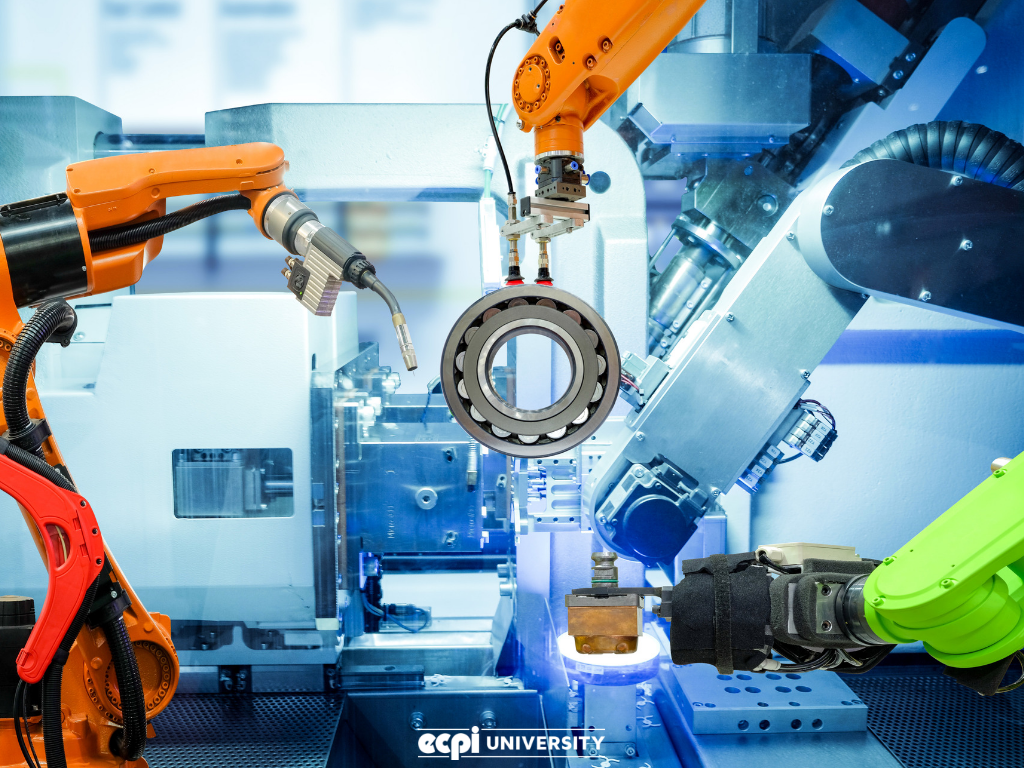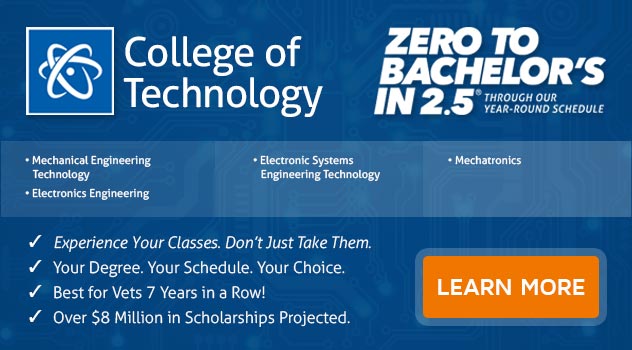Mechanical Engineering Technology: Could this be the Right Field for Me?
Mechanical engineering is a terrific field, but if you’re more interested in hands-on machine design, testing, manufacturing applications and operations, mechanical engineering technology (MET) may be the field for you. Our country was built on manufacturing in the '40s and '50s, and thanks to the political push to bring jobs back home to America (plus robotics development and advanced electronics), MET in the United States is back.
MET Is a Tech Field
If you think mechanical engineering technology (MET) is a get-your-hands dirty job, think again! The specialized equipment used in MET requires more brain-power than motor oil.
Employment for MET Professionals
The largest employers of mechanical engineering technicians in 2016 were (in order):
- Architectural and engineering services
- Machinery manufacturing
- Transportation equipment manufacturing
- Computer/electronic product manufacturing
- Scientific research and development
Some of the titles for MET professionals may include:
- Drafting and Computer Graphics Engineer
- Industrial Engineer
- Manufacturing and Quality Management Engineer
- Mechanical Engineering Consultant
- Plant Maintenance Manager
- Power and Energy Engineer
- Product and Materials Testing Technologist
- Production Manager
- Product Engineer
- Transportation Engineer
What Types of Classes Do You Need to Become a Mechanical Engineering Technician?
To earn an undergraduate degree in MET, you’ll need to focus on these areas of study:
- Computer-aided engineering
- Electro-mechanical devices
- Manufacturing processes
- Material science
- Mechanical design/analysis
- Technological instrumentation/controls
- Thermal-fluid-energy sciences
You’ll also need to acquire professional behavior skills and work ethics that are appropriate for the type of technological work environment and/or clients for which you’ll be working.
Have you ever wondered why some college classes are “applied” and others are just…classes? For example, what’s the difference between “applied math” vs. “math” classes? When a class is “applied,” that means it is an area of study that uses real-world examples. You don’t just learn about something; you learn how it will be used in your job.
Your curriculum may include some (but probably not all!) of these courses:
- 3-D Modeling
- Analog Electronics
- Applied Engineering Programming
- Applied Fluid Mechanics
- Applied Heat Transfer
- CNC Machines
- Computer Configuration
- DC & AC Circuits
- Digital Systems
- Engineering Dynamics
- Engineering Graphics Communications
- Engineering Math/Software Apps
- Engineering Mechanisms
- Machine Design
- Machine Tools
- Manufacturing Materials Science/Processes
- Mechanical Design Applied Strength of Materials
- Motor Drives
Bachelor of Science in Mechanical Engineering Technology
Are you interested in the world of engineering technology? If you want to earn a Bachelor of Science Degree in Mechanical Engineering Technology, ECPI University offers this course at an accelerated pace. For more information about this exciting opportunity, connect with a knowledgeable admissions counselor today.
It could be the Best Decision You Ever Make!
DISCLAIMER – ECPI University makes no claim, warranty, or guarantee as to actual employability or earning potential to current, past or future students or graduates of any educational program we offer. The ECPI University website is published for informational purposes only. Every effort is made to ensure the accuracy of information contained on the ECPI.edu domain; however, no warranty of accuracy is made. No contractual rights, either expressed or implied, are created by its content.
For more information about ECPI University or any of our programs click here: http://www.ecpi.edu/ or http://ow.ly/Ca1ya.





